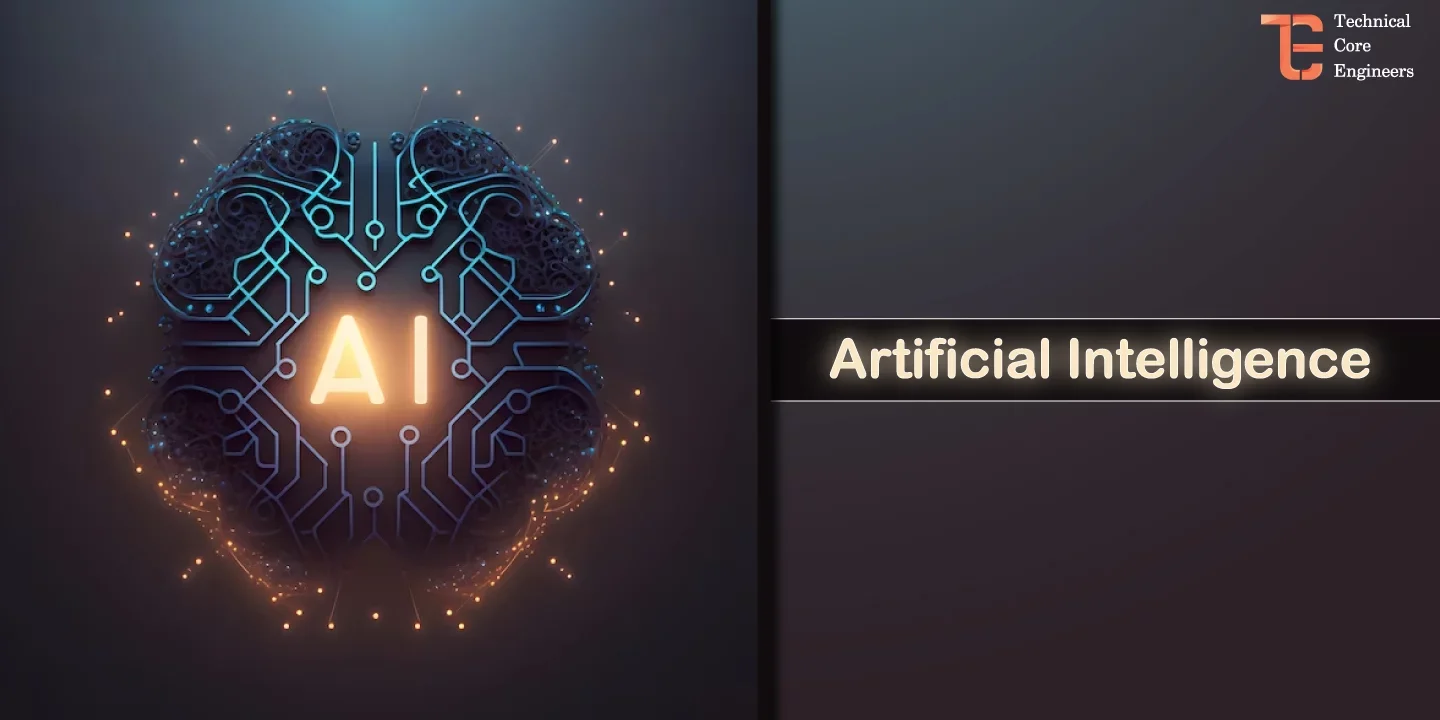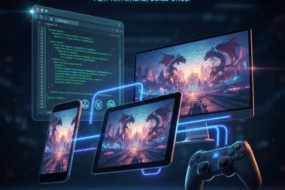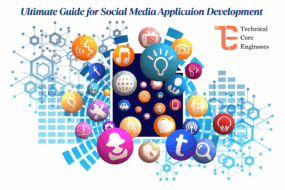- Home
- Digital Technology
- Artificial Intelligence: How A ...

Artificial intelligence (AI) refers to the emulation of human intellect in devices that have been design to behave and think like humans. The phrase may also use to refer to any computer that demonstrates characteristics of the human intellect, such as learning and problem-solving.
Furthermore, there are many ways to use artificial intelligence (AI) every day. But you don’t notice it. So, Tecoreng is explaine briefly and point-wise maximum try to understand it.
Artificial Intelligence
So, Here are some most common examples of artificial intelligence(AI) Include:
Natural language processing (NLP)
NLP is the ability of a machine to understand and process human language. Also, NLP is used in a variety of applications, including chatbots, machine translation, and speed recognition.
Machine Learning (ML)
Machine Learning is a type of AI that allows machines to learn from data without being explicitly programmed. Furthermore, ML is used in a variety of applications, including chatbots, machine translation, and speech recognition.
Deep Learning (DL)
Deep Learning (DL) is a subset of ML that uses artificial neural networks to learn from data. As well as DL is used in a variety of applications, including self-driving cars, medical diagnosis, and image generation.
Moreover, AI is very important to make it easy for human life. The phrase artificial intelligence is increasingly widely used, and in certain situations, it is even present in homes. For example
Smart Home Device
Intelligent home appliances have significantly increased in popularity. These gadgets increase convenience and security while combining AI technology, from smart security cameras with face recognition capabilities to smart thermostats. Like Nest learn and adapt to homeowners’ preferences.
Personalized Streaming Services
AI algorithms use streaming services like Netflix and Spotify to offer tailored content suggestions based on consumers’ viewing and listening preferences. So, The ability to customize entertainment selections to suit personal preferences has become a regular feature in many homes.
Gaming
Characters and enemies controlled by AI have become essential components of contemporary video games, offering gamers difficult and engaging experiences. As well as These days, NPCs (Non-Player Characters) with AI-controlled behavior are frequently seen in video game plots.
Language Translation
Instant text and audio translation into several languages are made possible by AI-driven language translation services like Google Translate. Also, that makes it simpler for households to interact across linguistic borders.
AI-Powerd Appliances
Some household appliances have begun to include intelligent characteristics, such as AI-driven refrigerators or ovens. So, these gadgets may recommend meals depending on the items that are on hand, save energy use, and learn the preferences of the user over time
Virtual Assistants
So, AI has entered millions of households across the world thanks to well-known virtual assistants like Amazon’s Alexa, Apple’s Siri, Google Assistant, and Microsoft’s Cortana. So, These voice-activated AI-powered assistants are a common sight in many homes. Because of their ability to respond to queries, operate smart home gadgets, play music, and carry out a variety of other functions.
Social Media Algorithms
To filter users’ newsfeeds and suggest content, major social media sites like Facebook, Instagram, and Twitter utilize AI algorithms. So, The material that users frequently encounter is shaped by these algorithms, which examine user interactions and behavior.
Healthcare and wellness
Health applications and gadgets with AI capabilities are becoming more and more common. Also, These technologies, range from fitness trackers that keep tabs on daily activity to AI chatbots. So, that offers health advice and analyses of symptoms, are increasingly widely utilized in homes for managing health and well-being.
How AI is Transforming Every Industry

Most off businesses use technology, machinery, and many AI-based items. So, some industries in AI work will explain here!
Healthcare
These powered image recognition and analysis algorithms enhance the accuracy and speed of medical imaging, such as X-rays, MRIs, and CT scans. In order to assist in the diagnosis of different diseases. Also, to forecast health risks, AI algorithms can examine enormous volumes of patient data, including medical records, genetics, and lifestyle variables.
Moreover, AI makes it possible to remotely monitor patients with long-term diseases, giving medical professionals access to real-time monitoring of vital signs and health information. So, This proactive method reduces needless hospital visits by spotting early indicators of deterioration. Much more work with AI is so easy like…
- Medical Billing
- Patient Meeting Scheduling
- X-rays
- MRIs
- CT scans
Government
Governments to identify fraudulent behaviors like tax evasion and social benefits fraud. AI-based cybersecurity solutions aid in defending vital infrastructure against online threats and assaults as well as sensitive government data.
Through intelligent traffic management systems, AI is utilized to improve traffic flow in cities. AI systems alter traffic signal timings. And reduce congestion by analyzing real-time data from cameras, sensors, and GPS devices. like…
- Government Policies
- Reduce crime rates
- Reduce Tax evasion
- Reduce Social benefit fraud
- population count
Real Estate
That analyzes property listings, user preferences, and market trends to provide personalized property recommendations to the buyer and renters.
To properly predict property prices, AI systems assess historical real estate data, market trends, and property qualities. That schedule property viewings, respond to consumer inquiries immediately and walk customers through the purchasing or renting process. This improves consumer engagement and experience.
- Help property buyer
- on-rent property
- Predict property price
Education
Platforms for adaptive learning driven by AI evaluate students’ strengths and weaknesses and adjust the pace and substance of the lesson to suit each student’s needs. This individualized approach encourages improved learning results and increases student engagement.
The creation of educational content by AI, such as tests, exercises, and lesson plans, can reduce the workload of teachers and increase the accessibility to excellent resources.
- Scheduling enrollment
- Quiz
- Especially remote learning during Covid -19
Agriculture
These data are supervised by AI algorithms to optimize irrigation, fertilization, and pest management, increasing agricultural yields and conserving resources.
Using weather data, precise weather forecasts and climate projections may be made. Farmers may use this knowledge to plan planting and harvesting dates and reduce hazards associated with the climate.
- Predict whether
- Eco-friendly farming technique
- Financial performance
- Use of Chemical treatment
Logistic
Logistic AI-powered systems make it possible to efficiently match goods with the various modes of transportation, taking into account things like weight, volume, and delivery deadlines. So, This enhances resource use and load optimization.
That helps to find out a shortcut way of location. That provides service in logistics, responding to inquiries, tracking shipments, and addressing customer concerns.
- Warehouse Management
- Fraud detection
- Route optimization
Construction
With AI algorithms analyze historical project data, including schedules, budget, and performance metrics. The project model automatically the creation and updation of 3D models.
Construction sites monitor AI-power sensors and cameras for possible dangers and unsafe conduct. Also, Based on previous data, AI systems can forecast safety concerns, assisting in the reduction of accidents and injuries.
- Build 3D Project
- Quality
- Safety
Conclusion
These are just a few examples of how AI is revolutionizing several sectors. The ability of AI technology to spur innovation and efficiency will only increase as it develops. having a significant impact on a variety of different industries in the years to come. To solve such issues, it is crucial to take the ethical implications into account and guarantee responsible AI deployment.





